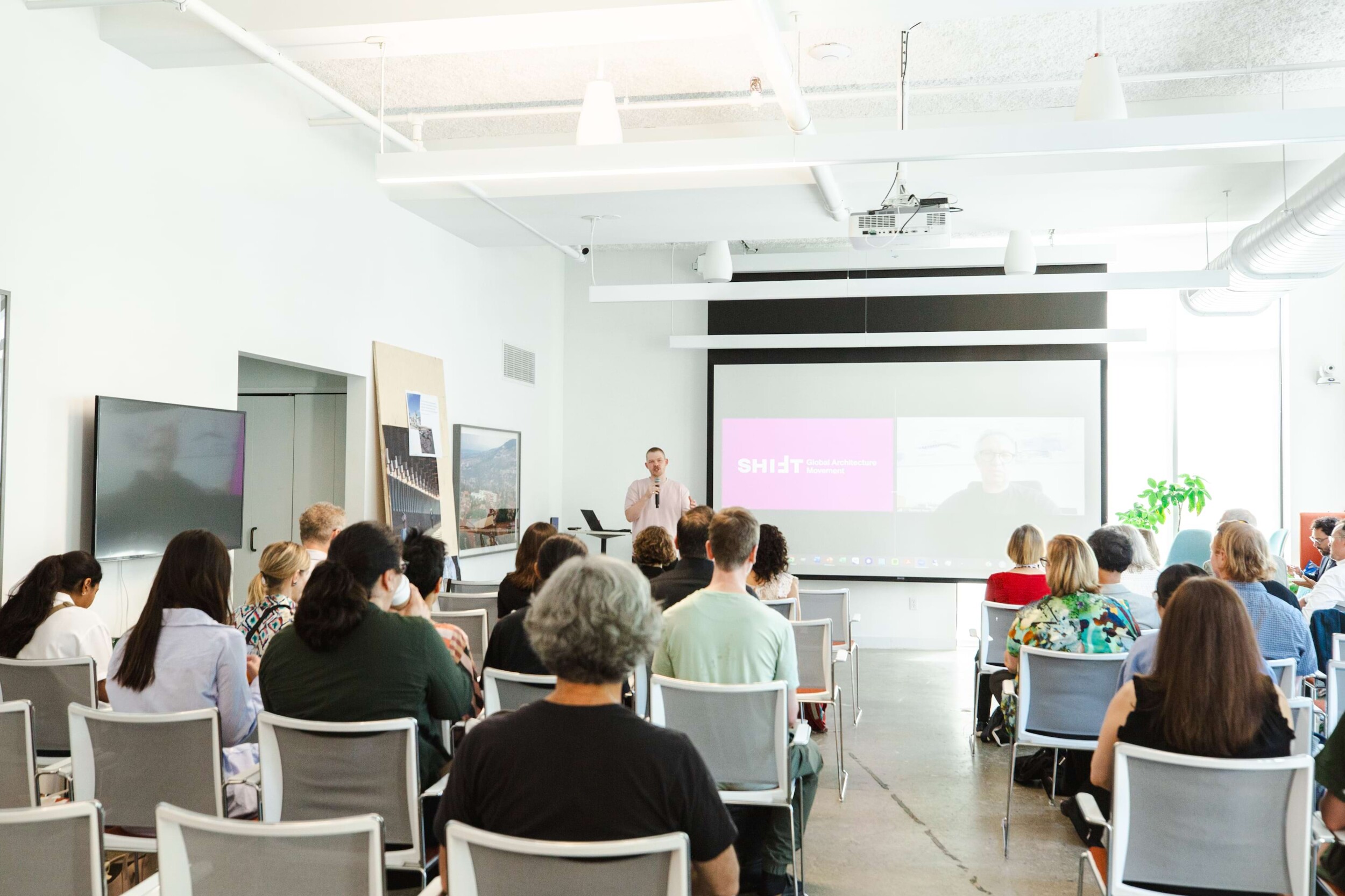On June 5th, SHIFT hosted an intimate, thought-provoking gathering in Boston, bringing together architects, climate leaders, researchers, and advocates to explore how we can redefine the built environment through southern-informed, regenerative design practices. Set in the welcoming space of MASS Design Group, the event provided a rare opportunity for cross-disciplinary exchange in a setting that encouraged open, candid conversation. The focus of the day: how to critically reassess the systems shaping our cities and buildings, and how to center cultural heritage, local climate, and community needs in the solutions we scale.
What We Explored
- Opening Keynote:
Thomas Auer (Transsolar) opened the day with a powerful livestream keynote challenging conventional, tech-driven sustainability models. He urged a shift toward climate-responsive design rooted in physical principles and local contexts. - SHIFT Framework Overview:
Sebastian C. Koth (Technical University of Munich) presented an overview of SHIFT’s evolving framework, highlighting how SHIFT will display successful, scalable strategies from the Global South that offer tangible alternatives to extractive development models. - Designing for Regeneration:
In three short presentations, Carl Elefante, Kelly Alvarez Doran, and Therese Graf unpacked the systemic missteps of 20th-century architecture and emphasized precedents of hope as well as projects and practices that already embody the regenerative future we need. - Message from the Global South:
Cid Blanco Junior delivered a message from the International Union of Architects (UIA), introducing the upcoming Letter – a collective vision from Latin American architects for climate and cultural resilience ahead of COP30. - Panel Discussion – Engaging Communities, Measuring What Matters:
A dynamic conversation featuring Lori Ferriss, Alejandra Menchaca, Emily Goldenberg, moderated by Vincent Martinez and Sebastian C. Koth, explored how we can truly engage communities so that the built environment reflects those who use it. The panelists discussed measuring intangible values like connection to place, breaking down regulatory barriers, and keeping solutions simple. A key theme: we have much to learn from the Global South, heritage practices, and communities everywhere who are already advancing low-carbon, resilient ways of building and living. And more importantly, critically reflect on how we measure success, and for whom.
More than a typical conference, the Boston convening created space for participants to speak honestly about the limitations of current industry paradigms and to find alignment around a common desire for change. The conversations highlighted the urgent need to de-center technological quick fixes and instead invest in design approaches that are deeply contextual, equitable, and resource-conscious.
The event reaffirmed that the SHIFT community is not alone in calling for this transformation and that a global movement is gaining momentum.



